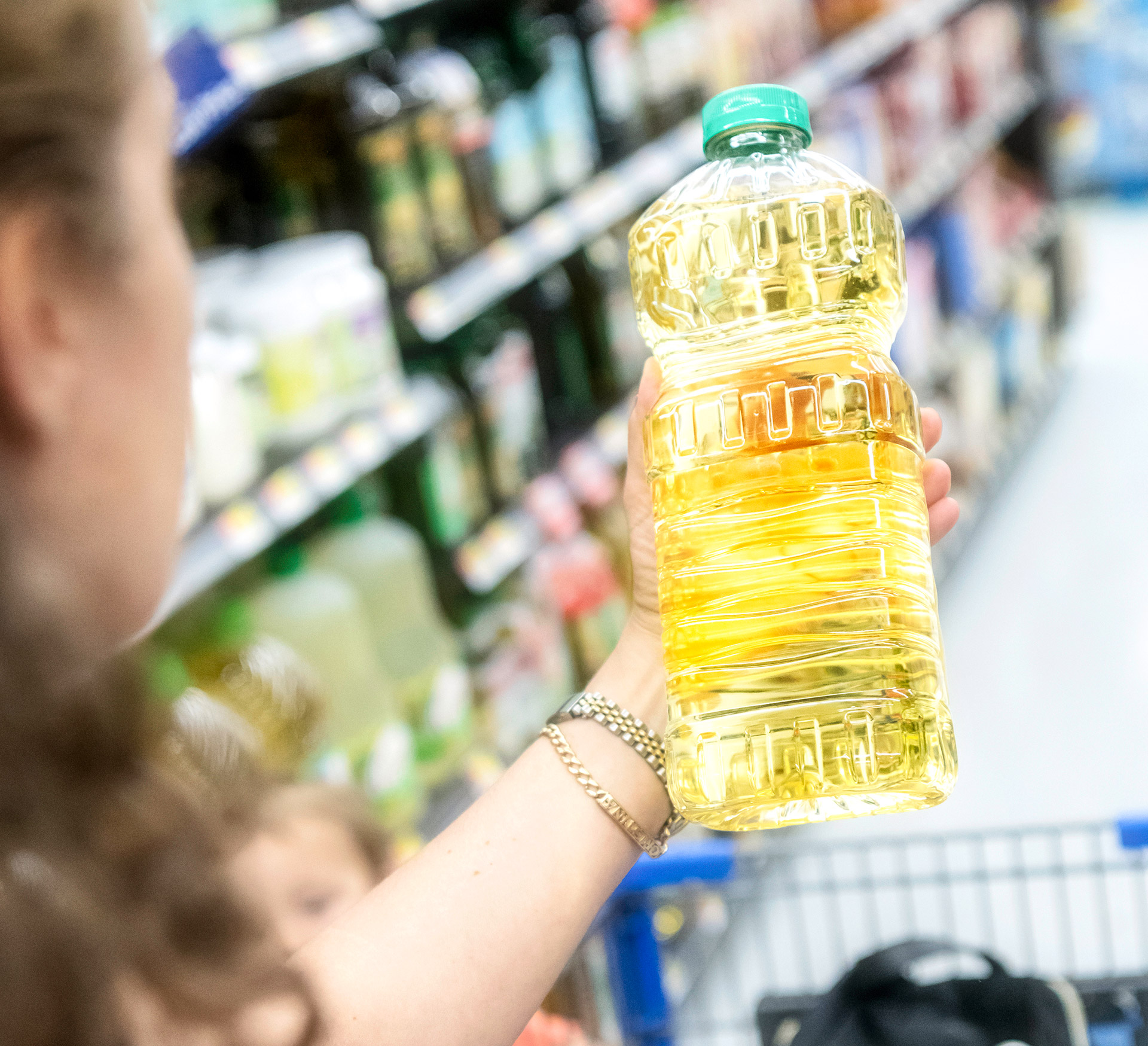
Born in Canada
Canola was developed by researchers in the 1970s to provide Canadians with a healthier, more sustainable, and versatile cooking oil. Using traditional plant breeding methods, canola was developed to be low in erucic acid and glucosinolate, becoming the healthier, more palatable version of rapeseed. In 1978, canola was officially named, bringing the two worlds of its creation together – “Can” representing Canada, and “ola” meaning oil in latin2.
Canola’s journey to success
Over the past half-century, canola has become one of the world’s most important oilseeds and one of Canada’s leading crops. While most associate the crop with heart-healthy cooking oil, canola is actively used in the beauty, pet food, manufacturing, and sustainable biofuel industries, alongside many others – this versatility is key to the crop’s success.
Canola in our homes
While canola is commonly found in oil, margarine, cooking spray, and shortening, uses for the crop expand far beyond the kitchen cupboard. In homes across Canada, canola is used in many cosmetic products, including creams, shampoos, soaps, and lipsticks. It can also be found in printing ink, paper and plastic wrap, and dust depressants. Additionally, canola meal is commonly used in pet foods for dogs, cats, and fish because it’s high in protein and amino acids. You can learn more about canola’s various uses here!

Contributions to our economy
Canola directly impacts the success of Canadian farmers, ensuring strong rural communities, continued employment, and domestic value-added activities. There are 14 canola crushing and refining plants across Canada, with a combined capacity to crush approximately 11 million tonnes of canola seed each year3. As the Canadian processing sector grows, these companies will continue to bring new jobs and opportunities.
Today, canola adds nearly $30 billion in activity to the Canadian economy and provides 207,000 Canadians with jobs each year, both within and outside the agriculture industry, totalling over $12 billion in wages4.
Feeding the world
Helping to feed our communities and power the global food industry, Canadian canola is a trade powerhouse, with 90% of its production as seed, oil, and meal exported to more than 50 countries throughout the world5. While other countries grow canola, Canada remains the world leader in canola exports, with the United States being the biggest buyer of both Canada’s canola oil and meal.

Thanks for reading about the true made-in-Canada success story that is canola. With new innovations creating even more uses for our uniquely Canadian crop, it’s time for all of us to celebrate canola’s positive impact on Canada and the world.
Sources
- Statistics Canada. Production of principal field crops, November 2022. www.150.statcan.gc.ca
- Manitoba Canola Growers. What is Canola? www.canolagrowers.com
- Canola Council of Canada. About Canola. www.canolacouncil.org
- Canola Council of Canada. Economic Impact of Canola. www.canolacouncil.org
- Canadian Canola Growers Association. Trade. www.ccga.ca




